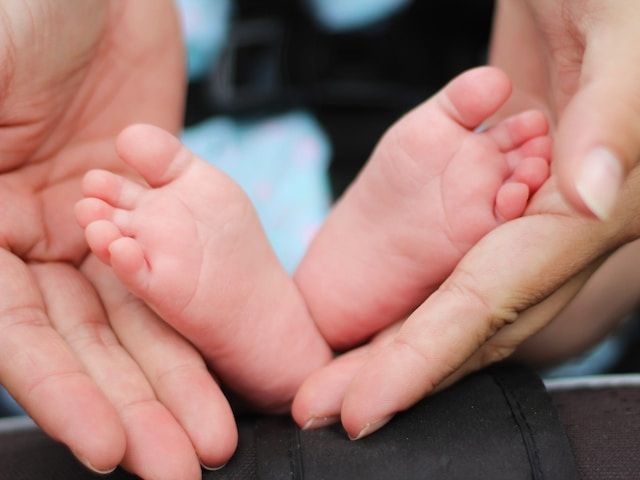
National Breastfeeding Week
National Breastfeeding Week is recognized and celebrated every year during the first week of August. Here’s more about the significance of this yearly observance and where to get donor milk and support if you and your baby are affected by the 2022 Infant Formula Shortage.
What Is National Breastfeeding Week?
National Breastfeeding Week originated in 1992 and is celebrated every year from August 1 to August 7. It was created to generate public awareness and support for breastfeeding, and to promote breastfeeding as the best source of nutrition for a baby during their first year of life. Another goal of National Breastfeeding Week is to protect and support the rights of women to breastfeed anywhere at any time to nourish their babies.
What Is the 2022 Infant Formula Shortage?
In February 2022, several baby formula manufacturers recalled many of their products after four infants became ill and two infants died from consuming formula that gave them a Cronobacter sakazakii infection. Cronobacter sakazakii is a bacteria that can live in dry foods including herbal teas, powdered milk, and powdered baby formula. Illnesses caused by this bacteria are rare but can be deadly for infants.
The CDC reports that recalls on various baby formula products began on February 17. Since then, store shelves across the U.S. have been bare and hundreds of thousands of parents are having difficulty feeding and caring for their babies. Additionally, ongoing supply chain issues and import restrictions have made it even more challenging for parents to find baby formula.
What Is Donor Milk?
Donor milk comes from nursing moms who donate extra breast milk to milk banks. Donated breast milk is closely screened, pasteurized, and tested before it is distributed. It is usually dispensed to babies who are premature or ill and whose mothers are unable to pump or use their own milk.
Women who donate milk are volunteers and receive no payment or compensation for their milk. Milk banks are located all throughout the U.S. to help parents who need nutritious human milk for their babies.
Is Donor Milk Safe?
Donor milk is incredibly safe as it comes from mothers who are healthy, carefully screened, and meet the strict criteria set forth by the milk bank. All donors are educated on the proper techniques for pumping, keeping their hands and breasts clean, and cleaning and sterilizing breast pump equipment.
According to the American Pregnancy Association, all donor milk is pasteurized to destroy any bacteria or infecting organisms that may be present in the milk. While pasteurization does destroy a small percentage of nutrients in the milk, the milk itself remains far healthier and more nutritious than most infant formulas.
Women who want to become breast milk donors must provide their medical histories and fill out an extensive lifestyle questionnaire that helps the milk bank determine whether they are ideal candidates. Most women must also get approval from their healthcare providers before donating milk and get tested for sexually transmitted infections, including syphilis, hepatitis B, and HIV. Rules and regulations for milk banks are set by the CDC, FDA, and the Human Milk Banking Association of North America (HMBANA) and are stricter than those surrounding blood donation.
Donor Milk Resources and Support
Donor milk is a wonderful gift — especially to parents who are struggling to feed and nourish their babies during the 2022 Infant Formula Shortage. If you are a milk donor, your milk could potentially save the lives of one or more babies.
To become a milk donor, contact any milk bank posted on the HMBANA website. A staff member will guide you through the screening process. If you do not live near any of the milk banks, you can drop off donor milk at an approved milk depot site or ship it to the facility free of charge.
Milk-sharing networks and informal arrangements with friends and relatives are other options for those who want to obtain or donate breast milk. Eats On Feets and MilkShare are some of the many community-based milk-sharing networks that allow you to connect with local milk donors or those who need donor milk.
La Leche League International is an excellent resource for those interested in donor milk, as is HMBANA.
Consult with your healthcare provider directly to learn more about your options for obtaining donor milk. Your healthcare provider can discuss your available options and refer you to a nearby milk donor.
Research and materials for this article were compiled, written, and distributed on behalf of the National Public Health Information Coalition. The views and opinions expressed in this blog are those of the various authors and do not necessarily reflect the official policy or position of the National Public Health Information Coalition or its members.
References
Centers for Disease Control and Prevention. (2022, May 24). Cronobacter and powdered infant formula investigation.
American Pregnancy Association. (n.d.) Donor breast milk.
Human Milk Banking Association of North America. (n.d.) Find a milk bank.
La Leche League International. (2020, September). Milk donation and sharing.

